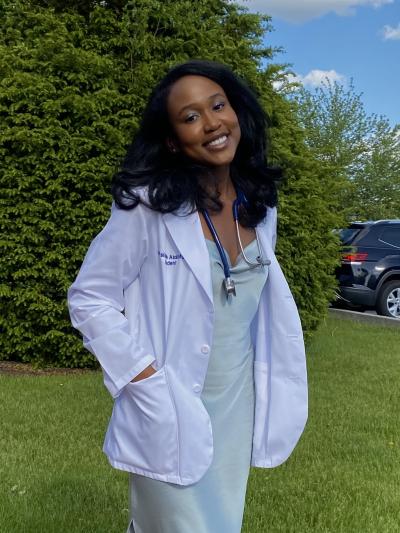A Physician Assistant is a health care professional licensed to practice medicine on teams with physicians and other healthcare professionals. They usually work in collaboration with a physician. Physician Assistants (PAs) conduct physical exams, diagnose and treat illnesses, order and interpret tests, counsel on preventive health care, assist in surgery, and in most states write prescriptions. Similarly to physicians, PAs can specialize in many different areas of medicines, and in some rural areas, may be primary care providers. For more information, please see the PA profile in the Bureau of Labor Statistics’ Occupational Outlook Handbook and the Statistical Profile of Certified Physician Assistants by State Annual Report.
A master’s degree is required in order to become a Physician Assistant (PA). These programs are generally 2-3 years long, at the end of which students receive their Master of Physician Assistant (MPA), Master of Science in Physician Assistant Studies (MSPAS), or Master of Health Professions or Physician Assistant Certificate. Before entering a PA program, students are required to have a Bachelor’s Degree and to have successfully completed a series of prerequisite courses.
PA programs do not require a specific major in order to apply, and the University of Maryland does not offer a “Pre-PA” major, degree, or certificate. However, the University of Maryland does offer the prerequisite courses needed for admission to a PA program, and offers advising for pre-PA students. In addition, there are many Minors that cover topics critical to expanding understanding of the various determinants of health. Even if your four-year plan does not permit adding a minor, it is worth reviewing the curated course lists for courses that will stretch you, increase your language for difference and disparity, and improve your critical reasoning skills.
While prerequisites vary widely from school to school, common prerequisites can include (but are not limited to):
- General Biology I and II
- Human Anatomy and Physiology I and II
- General Chemistry
- Organic Chemistry
- Microbiology
- Biochemistry
- General Psychology
- Abnormal Psychology
- UMD has this course in two different stages Adult Psychopathology (PSYC353) and Child Psychopathology (PSYC330)
- Developmental Psychology (PSYC355)
- English Composition
- Statistics
- Medical Terminology
Students can use the Physician Assistant Education Association Online’s PA Program Directory to look at specific prerequisite courses for different schools, and can use the most recent Curriculum Survey Report to explore common prerequisites across PA programs.
Many PA programs require applicants to have had previous healthcare experience. The typical applicant already has two to four years (or over 1,000 hours) of direct patient care experience (such as EMT, CNA, MA, phlebotomist, etc). Some programs also require the Graduate Record Exam (GRE) or the PA-CAT. Because requirements to programs vary so widely, it is important to make a detailed school list and keep it updated.
University of Maryland Pre-Physician Assistant Club
Sample Clinical Hours Tracking Sheet
Personal Statement Character Counter
Local Professional Programs
- University of Maryland Baltimore
- Towson University
- George Washington University
- Eastern Virginia Medical School
- Shenandoah University
- University of Maryland, Eastern Shore
- Howard University
National Resources




